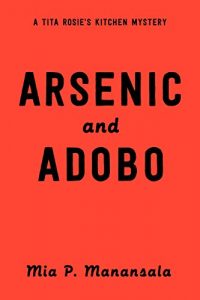 Welcome to the Pitch Wars Workshops with some of our amazing past and 2020 mentors. From a lottery drawing, we selected writers to receive a query and first page critique from one of our mentors. We’ll be posting some of the critiques leading up to the Pitch Wars submission window. Our hope is that these samples will help you in shining up your query and first page.
Welcome to the Pitch Wars Workshops with some of our amazing past and 2020 mentors. From a lottery drawing, we selected writers to receive a query and first page critique from one of our mentors. We’ll be posting some of the critiques leading up to the Pitch Wars submission window. Our hope is that these samples will help you in shining up your query and first page.
We appreciate our mentors for generously dedicating their time to do the critiques. If you have something encouraging to add, feel free to comment below. Please keep all comments tasteful. Our comments are set to moderate, and we will delete any inappropriate or hurtful ones before approving them.
Next up we have …
Pitch Wars Mentor Mia P. Manansala …

Mia P. Manansala (she/her) is a writer and book coach from Chicago who loves books, baking, and bad-ass women. She uses humor (and murder) to explore aspects of the Filipino diaspora, queerness, and her millennial love for pop culture.
She is the winner of the 2018 Hugh Holton Award, the 2018 Eleanor Taylor Bland Crime Fiction Writers of Color Award, the 2017 William F. Deeck – Malice Domestic Grant for Unpublished Writers, and the 2016 Mystery Writers of America/Helen McCloy Scholarship. She’s also a 2017 Pitch Wars alum and 2018-2020 mentor.
Her debut novel, ARSENIC AND ADOBO, comes out May 4, 2021 with Berkley/Penguin Random House and is the first in the Tita Rosie’s Kitchen Mystery series.
Mia also offers book coaching, check out her website for more information.
Website | Twitter | Instagram | Goodreads
Mia’s upcoming release, ARSENIC & ADOBO …

The first book in a new culinary cozy series full of sharp humor and delectable dishes—one that might just be killer….
When Lila Macapagal moves back home to recover from a horrible breakup, her life seems to be following all the typical rom-com tropes. She’s tasked with saving her Tita Rosie’s failing restaurant, and she has to deal with a group of matchmaking aunties who shower her with love and judgment. But when a notoriously nasty food critic (who happens to be her ex-boyfriend) drops dead moments after a confrontation with Lila, her life quickly swerves from a Nora Ephron romp to an Agatha Christie case.
With the cops treating her like she’s the one and only suspect, and the shady landlord looking to finally kick the Macapagal family out and resell the storefront, Lila’s left with no choice but to conduct her own investigation. Armed with the nosy auntie network, her barista best bud, and her trusted Dachshund, Longanisa, Lila takes on this tasty, twisted case and soon finds her own neck on the chopping block…
Penguin | Barnes & Noble | Book Depository | IndieBound | Amazon
Mia’s critique . . .
Category: Adult
Query:
All Sophie wants is to get the hell out of San Francisco, and grad school is her ticket. But [when] she’s confronted by her own psychotic doppelganger on a city bus, Sophie is threatened [literally?] by her greatest fear: the same genetic madness that her mother first succumbed to thirteen years ago.
No one else can see the terrifying Madwoman who keeps appearing to Sophie, asking to be let in. But when, in exchange for Sophie’s own sanity, the Madwoman offers her a chance to save her mother—something she has long thought impossible—she begins to consider it. Reality is disappointing, so how bad can madness really be? [this portion can be expanded—why is reality so disappointing for her? What are the actual stakes here? How does this affect her dream of going to grad school? What does “madness” mean here and how did it manifest in her mother? Where is her mother and what does “saving her” actually mean? Who else does Sophie interact with/what other relationships does she have that affect this story? I would examine the back cover copy of your comps to give you an idea of what else you can add here. As is, it’s interesting but vague. Get specific and hint at some of the people/events that occur in the story.]
TITLE is a contemporary novel with elements of magical realism [based on the query, this seems more like surrealism than magical realism], touching on themes [of] mental illness, family dysfunction, and coping with loss, as filtered through the narrator’s sardonic sense of humor. It also contains LGBT elements, though they are not the focus of the story. At 89,500 words, it will appeal to readers of ELEANOR OLIPHANT IS COMPLETELY FINE and THE BELL JAR. [good comps]
I have a Master’s Degree in Creative Writing from the University of Edinburgh, and have had short stories published in a handful of small journals and publications.
As a so-called millennial myself, living in a world of high rent prices and low salaries in the second most expensive city in the United States, where everyone and their mother is diagnosed with a mental illness (mine has Alzheimer’s), I am confident that this narrative will strike a chord with others of my generation. [interesting bio and shows that you know your target audience and why this story has meaning to you]
Thank you for taking the time to read and critique my submission. I look forward to hearing your feedback.
First page:
When did San Francisco become this festering shithole? I sidestep a hypodermic needle, my Doc Martens landing dangerously close to a mushy little brown swirl that I wish was soft-serve ice cream, but I know in my heart is human feces. [You start with a strong voice and visuals right off the bat. Great!] I wish [used “I wish” twice in a row, might want to switch it up] I could say this was the worst bus stop in San Francisco, but it’s not even in the top twenty. The financial district may be booming, new tech startups sprouting everyday like genital warts (not that I would know), but here in the Tenderloin, a few blocks away, it looks post-apocalyptic. [How so?] Ah, the beautiful city by the bay. I shiver. [Is this in reaction to her view? Her thoughts? The weather?] I’ve gotta find a less depressing route to work. [what makes it so depressing? You describe some of the surroundings below, but could use a little up here to connect with this sentence] I can’t wait to get out of here and go to grad school. Seriously, as soon as that acceptance letter comes through, I’m out. Rhode Island School of Design, here I come.
The three plastic seats beneath the bus stop’s awning are covered in a mysterious yellow sludge. No thanks, I’ll stand. Out of habit, [I] glance up at the marquee and its flickering orange pixels. Still broken. Across the street, a row of shivering transients lines the wall in front of the liquor store, surrounded by stolen shopping carts and broken wheelchairs, and an uncountable number of trash bags. A junkie with a needle still hanging off his arm looks up in toothless bliss. [great descriptions to show why she feels the way she does] You’d think after living my whole adult life in this place I would be used to it by now, but it was never this bad before. Growing up across the bay in suburban Moraga, I saw San Francisco as this idyllic free-love-hippy paradise. But like landline phones, videocassettes and Tamagochis, [Tamagotchi] that place is a thing of the past.
I avert my eyes, pull my hood down over my big headphones. Fear. And shame. You’d think that of all people, I’d be used to the idea of mental illness, considering what happened to Mom, yet the familiar mixture of emotions still curdles in my stomach. I’m especially sensitive to it today, since it was exactly thirteen years ago that she first started showing symptoms. Half my lifetime ago, but still vivid as ever. [good way of showing us her age and giving us a sense of time, plus great stopping point. Makes me want to read more and find out what happened to her mom]